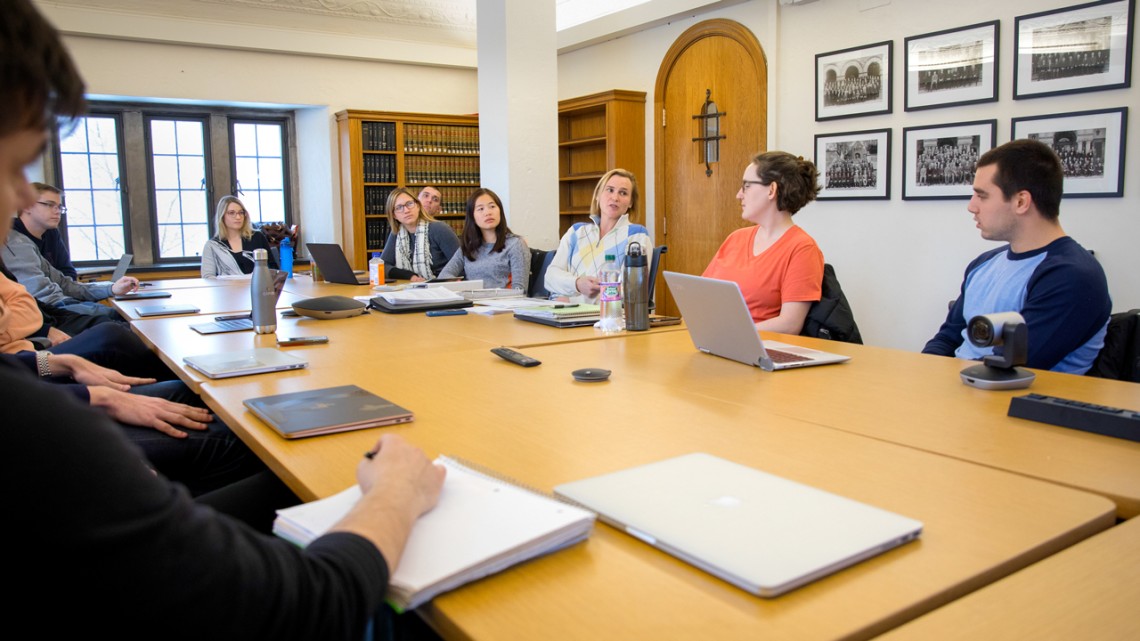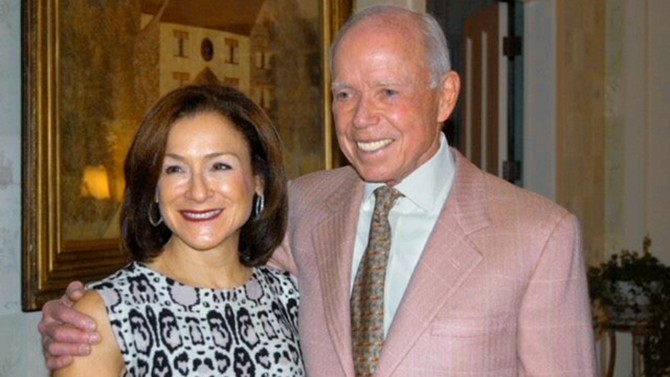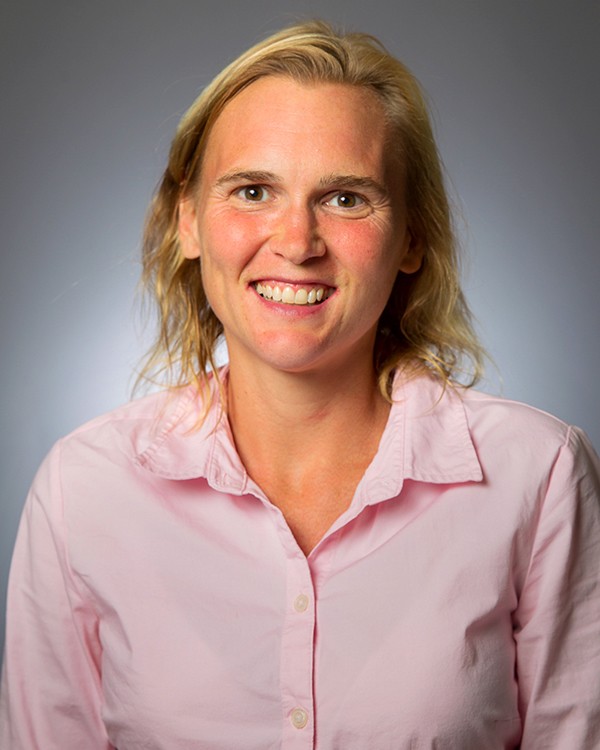
A law workshop led by Celia Bigoness, clinical professor of law and founder of the Entrepreneurship Law Clinic at Cornell.
Cornell Law to open Blassberg-Rice Center for Entrepreneurship Law
By Kenny Berkowitz
A new center for entrepreneurship – operating both in Ithaca and on the Cornell Tech campus in New York City – will deepen Cornell Law School’s commitment to supporting entrepreneurship initiatives through clinical education.
With the support of a transformative gift from Franci J. Blassberg ’75, J.D. ’77, and Joseph L. Rice III, the Blassberg-Rice Center for Entrepreneurship Law will expand the popular Entrepreneurship Law Clinic.
“We are so excited to help support the incredible program at Cornell Law School to train students to be thoughtful counselors to entrepreneurs and to provide an enhanced opportunity for entrepreneurs to get excellent legal guidance,” Blassberg said.
The Blassberg-Rice Center’s first priority will be the expansion of the five-year-old Entrepreneurship Law Clinic, in which students provide Ithaca-area startups with a wide range of free transactional legal services, counseling clients on everything from branding to commercial contracts, data privacy, employment, equity allocation, founders’ agreements, intellectual property, marketing, negotiations and, during the pandemic, COVID-19 protocols for businesses and employees.
Law students can start in the clinic in their second and third years, and typically remain in the clinic for the rest of their Cornell careers, gaining transactional experience as they progress toward graduation. Along the way, they sharpen the foundational skills they need to succeed in corporate law, emerging with a real-world understanding of building long-term relationships and advising clients across the early stages of business development, said Celia Bigoness, who founded the Entrepreneurship Law Clinic and will now direct the Blassberg-Rice Center.
The center will both broaden the clinic’s existing Ithaca work and give law students who choose to spend a semester at Cornell Tech an opportunity to work with clients in the New York City area – a first for the law school’s Cornell Tech curriculum.
“The creation of the Entrepreneurship Law Clinic has been one of the most important developments in our clinical program,” said Jens David Ohlin, the Allan R. Tessler Dean and Professor of Law. “It’s been hugely successful – so successful that its capacity isn’t nearly enough to satisfy student demand. This expansion will allow us to scale the program while keeping the intensive, hands-on approach that makes it so effective. We can broaden our reach, turning this clinic into a full-blown center and offering our corporate law students a transformational experience in New York City.”
Ohlin and Bigoness expect to hire two full-time clinical instructors in 2024, one based in Ithaca and the other at the Cornell Tech campus on Roosevelt Island. They are seeking to hire experienced lawyers with an established commitment to both startup legal services and legal education. Those hires would triple the number of faculty in the clinic, the number of client businesses it serves and the number of law students who can participate.
“We have a model that’s working really well, but we’re just touching the tip of the iceberg in the clients we can serve,” says Bigoness, clinical professor of law. “With the creation of the center, more students will gain the hard legal skills of transactional lawyering along with the soft skills of managing long-term relationships with clients. They’ll learn how to think from a business owner’s perspective, how to communicate about finance and risk management, and how to hit the ground running when they begin their full-time practice as lawyers.”
In Ithaca, Cornell Law students will continue focusing on the clinic’s waitlist of regional entrepreneurs. Companies that have recently worked with the clinic include AI-Learners, which provides accessible math courses for children with learning disabilities, and Lev Kitchen, a Middle Eastern restaurant that provides a living wage to its staff and is owned by two Cornell Nolan School of Hotel Administration graduates. In New York City, Cornell Law students will represent a similar variety of entrepreneurs and startups while participating in a technology-focused law curriculum at Cornell Tech. This program will allow Cornell Law School to deepen its partnership with Cornell Tech in promoting the growth of both for-profit and nonprofit technology-based business ventures.
Kenny Berkowitz is a freelance writer for Cornell Law School.
Media Contact
Get Cornell news delivered right to your inbox.
Subscribe


